100,000+ children in Ethiopia’s Tigray at risk of death from malnutrition: UNICEF
The United Nations Children’s Fund (UNICEF) has voiced concern about the dire humanitarian situation in Ethiopia’s conflict-ridden region of Tigray, saying more than 100,000 children could suffer from life-threatening severe acute malnutrition in the next 12 months, a 10-fold jump in average annual levels.
Marixie Mercado, spokeswoman for the children’s agency, made the remarks at a UN briefing in the Swiss city of Geneva on Friday, calling for “unfettered access” to Tigray and across the region in order to provide support for those who are in urgent need of humanitarian aid.
“As UNICEF reaches areas of Tigray that were inaccessible in past months due to insecurity, our worst fears about the health and wellbeing of children in that conflicted region of northern Ethiopia are being confirmed,” Mercado said.
“UNICEF estimates that over 100,000 children in Tigray could suffer from life-threatening severe acute malnutrition (SAM) in the next 12 months — a tenfold increase compared to the average annual caseload,” she said, adding that there were no mortality estimates though.
Mercado also said that one in two pregnant and breastfeeding women screened in the region were acutely malnourished, leaving them and their babies prone to sickness.
“These alarming rates suggest that mothers could face more pregnancy-related complications, increasing the risks of maternal death during childbirth as well as the delivery of low birth weight babies who are much more prone to sickness and death,” she said.
Jens Laerke, spokesperson for the UN Office for the Coordination of Humanitarian Affairs (OCHA), also said the world body needed satellite phones and other critical communications equipment for its aid operation in Tigray, urging the Ethiopian government to grant permission as well as longer visas for aid workers.
And Tomson Phiri, spokesperson for UN’s World Food Programme (WFP), said it had been two weeks since a convoy of the UN food agency had last been able to enter the Tigray regional capital, Mekelle.
“A convoy of over 200 trucks is on its way now from Semera to Mekelle. This is a drop in the ocean,” he told the briefing. “We need at least 100 trucks to be making their way every day into Tigray if we are to stand a chance to reverse the catastrophic situation which we have today.”
Fighting erupted in Tigray in November last year when the federal government accused the Tigray People’s Liberation Front (TPLF) — once the region’s powerful ruling party — of attacking military bases across the north. Three weeks later, the government declared victory when it gained control of Mekelle.
But the TPLF forces, who had retreated to the mountainous areas around the Tigrayan capital, resumed fighting later. They retook Mekelle and most of Tigray at the end of June after the government pulled out its soldiers and declared a now-faltering ceasefire. The TPLF, which had played a major role in Ethiopian politics before Prime Minister Abiy Ahmed came to power, sees itself as a strong force in the region.
The conflict has sparked international criticism of Abiy and concern for the stability of Africa’s second-most populous country.
The Tigray conflict has forced nearly two million people to flee their homes and forced around 400,000 people into famine conditions.
Iranian commander dismisses US military buildup in West Asia as ‘theatrical gesture’
US special envoy says Trump ‘curious’ as to why Iran hasn’t ‘capitulated’ yet
Lindsey Graham urges Trump to ignore aides opposing war on Iran
Far-right, anti-Islam protest sparks counter-protests in Manchester
Press TV's news headlines
Sudan’s mining sector suffers $7 billion loss amid ongoing civil war
Ansarullah slams Israel’s massacre in east Lebanon, urges unified Arab action
Iran resolved to uphold nation’s nuclear rights via diplomacy: FM Araghchi


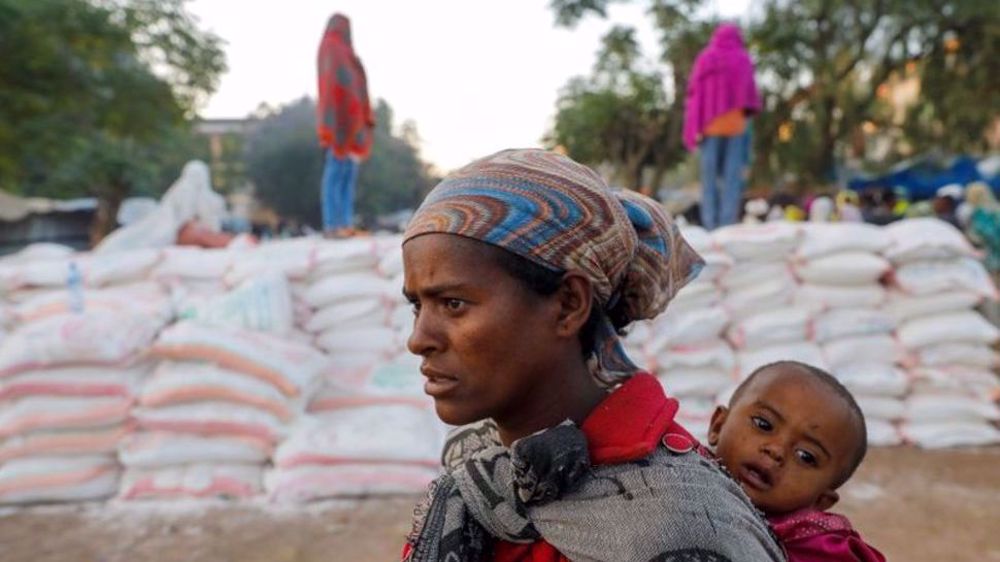
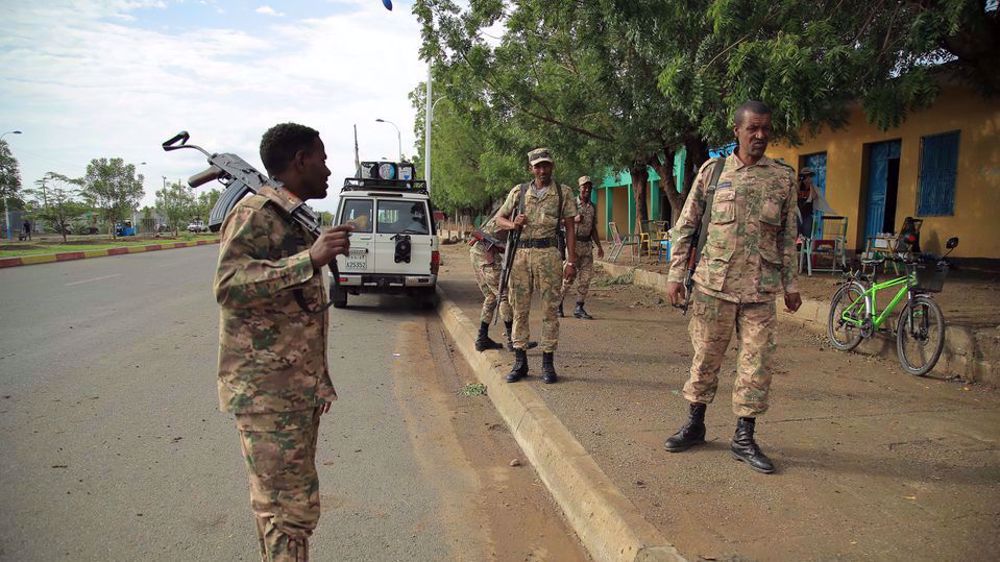
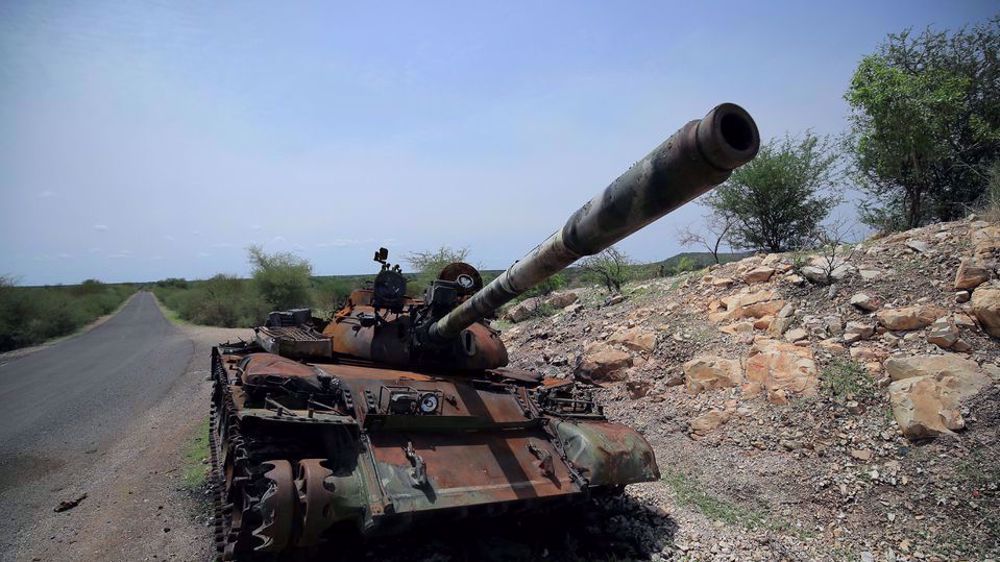






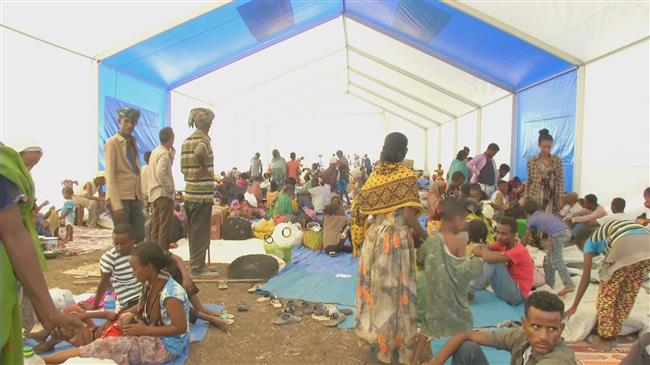
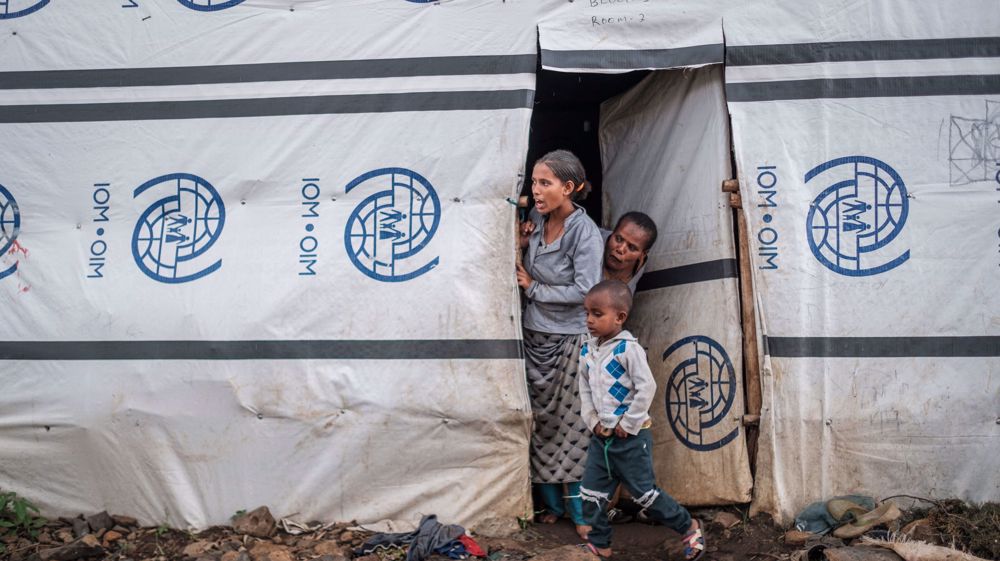

 This makes it easy to access the Press TV website
This makes it easy to access the Press TV website